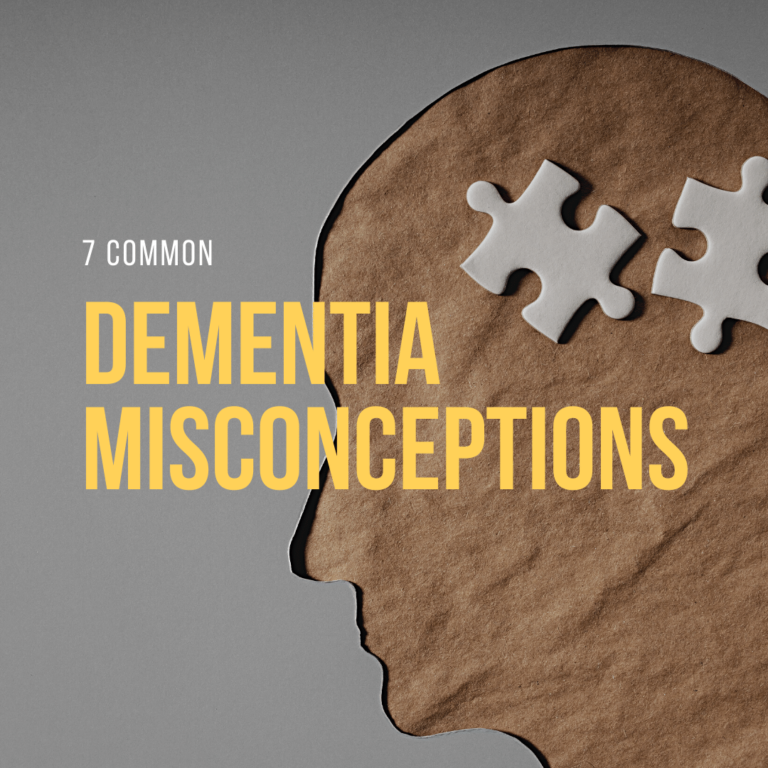There are many misconceptions about dementia. This is unsurprising, as dementia is a complex illness that is not well understood by the general public. This can make it difficult to understand for those who have never experienced it firsthand. In this blog post, we will dispel some of the most common myths about dementia. We will also provide information about what dementia actually is, and how it affects people’s lives.
What is Dementia?
Dementia is a degenerative brain disease that causes problems with memory, thinking, and behavior. It is typically diagnosed in people over the age of 65, but it can occur in younger people as well. Dementia affects people of all races and ethnicities.
Dementia is a progressive disease, which means that it gets worse over time. The speed at which it progresses varies from person to person. Some people may only have mild symptoms for a few years, while others may experience a rapid decline.
There are several misconceptions about dementia that we will address in this blog post. Some of the most common misconceptions include:
Myth: Dementia is Part of Aging
Contrary to popular belief, dementia is not a normal part of aging. This is one of the most common misconceptions about dementia. While it is true that the risk of developing dementia increases with age, dementia is not an inevitable part of growing old. There are many older people who do not develop dementia, and there are some people who develop dementia at a younger age.
Myth: Dementia Only Affects Older People
Although dementia is more likely to occur in older people, dementia is not a disease that only affects older people. While the majority of people with dementia are over the age of 65, there are also many younger people who live with the condition. This is known as early onset dementia, and it can be especially difficult to cope with, as it can occur in the prime of someone’s life. Early onset dementia can occur anytime between 30-64 years of age.
Myth: Dementia is Purely Genetic

Most people assume that if they have an immediate family member with dementia, then they are guaranteed to develop the condition themselves. However, dementia is not purely genetic. While genetics may play a role in some forms of dementia, there are many other factors that can contribute to the development of the condition. These include age, lifestyle choices, environmental factors, and health conditions. With that being said, there is a higher risk of a genetic link if the individual is diagnosed with dementia before the age of 65.
Myth: Memory Loss Means Dementia
Memory loss is not necessarily a sign of dementia. It is normal to experience some memory loss as we age and dementia is more than just forgetfulness. People with dementia may have difficulty with complex tasks, such as balancing a checkbook or cooking a meal. They may also lose the ability to communicate, or to understand language. While memory loss can be associated with Alzheimer’s, there are other types of dementia that have other early signs and symptoms besides memory loss. Still, if your memory loss is severe enough to affect your day-to-day living, then it is recommended to speak with your doctor.
Myth: There is No Quality of Life with Dementia

People with dementia can still enjoy a good quality of life. While the condition can be challenging, there are many ways to manage it and support people who live with it. With the right care and support, people with dementia can still lead happy and fulfilling lives. In fact, mild cases of dementia may not require any significant life changes. Even as the condition progresses, many people with dementia are still able to lead active and fulfilling lives. While there will likely need to be some changes to a person’s lifestyle at some point, there are still ways for people with dementia to enjoy their lives.
Myth: Dementia and Alzheimer’s are the Same
It is an extremely common misconception that dementia and Alzheimer’s disease are the same thing and these terms are often used interchangeably. Simply stated, dementia is not the same as Alzheimer’s disease. While Alzheimer’s is the most well-known type of dementia, there are many other types of dementia that are not Alzheimer’s disease. Each type has its own symptoms, pathology, and course of progression. The top five types of dementia include: Alzheimer’s disease, frontotemporal dementia, Lewy body dementia, vascular dementia, and mixed dementia.
Myth: Dementia Can be Prevented
There is no sure way to prevent dementia or stop its progression. However, there are some things that you can do to reduce your risk of developing the condition. These include maintaining a healthy lifestyle, keeping your mind active, and managing any health conditions that you may have. You can also reduce your chances of developing dementia by managing risk factors for the disease. Additionally, there are certain medications that can be used to help manage the symptoms of dementia.
In Conclusion
In this blog post, we have debunked some of the most common misconceptions about dementia in order to help people better understand the condition. While dementia can be a challenging and devastating condition, it is important to remember that people with dementia can still lead happy and fulfilling lives with the right care and support. If you or someone you know is living with dementia, there are many resources available to help you manage the condition.
If you have any questions about dementia, please feel free to reach out to us. We are always happy to help!

Dr. Kashouty, a diplomate of the American Board of Psychiatry and Neurology (ABPN), practices general neurology with fellowship trained specialization in clinical neurophysiology. Dr. Kashouty finds the form and function of the nerves and muscles the most interesting part of neurology, which is what led him to specialize in neurophysiology with more emphasis on neuromuscular conditions. He treats all neurological diseases, but his main focus is to treat and manage headaches, movement disorders and neuromuscular diseases.




